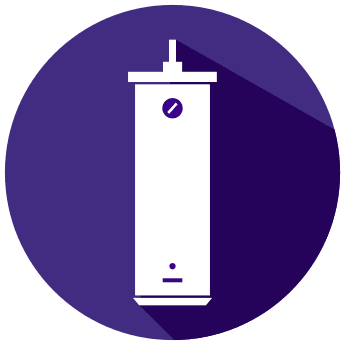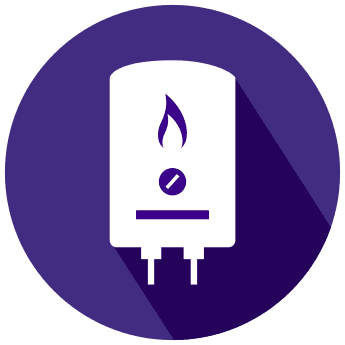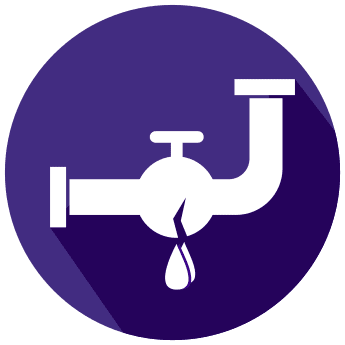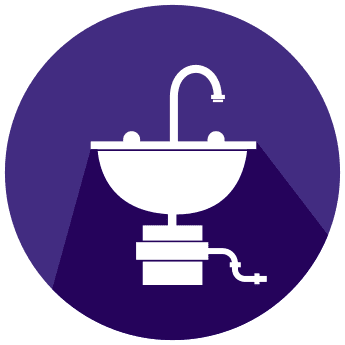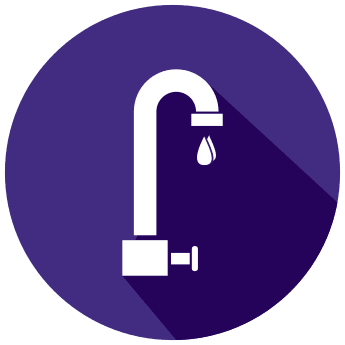There’s nothing quite as unsettling as walking into your home and being greeted by a foul sewer smell. Not only is it unpleasant, but it can also indicate serious issues within your plumbing system. If you’ve ever asked yourself, “Why does my house smell like sewer?” you’re not alone. Many homeowners face this issue, and it’s important to understand the potential causes and solutions.
Common Causes of Sewer Smell in House
Dry P-Traps
One of the most common causes of sewer smell in house is dry P-traps. These U-shaped pipes are designed to hold water and prevent sewer gasses from entering your home. When the P-trap dries out, sewer gas can escape and cause a bad odor. This issue is particularly common in rarely used sinks or fixtures.
Broken or Clogged Sewer Lines
A broken or clogged sewer line can also cause a sewer gas smell. If sewage can’t flow properly, it can back up and create pressure in your pipes, forcing sewer gas into your home. This issue is more severe and requires immediate attention from a professional plumber.
Sewer Vent Pipe Issues
Your home’s plumbing system includes vent pipes that allow sewer gases to escape outside. If these vent pipes become blocked or damaged, the sewer gas smell can accumulate and enter your home. Birds’ nests, debris, or even snow can block these vents.
Cracked Sewer Pipes
Cracks in your sewer pipes, whether inside or outside your home, can allow sewer gases to escape. These cracks can result from age, tree roots, or ground shifting. A professional inspection is necessary to diagnose and repair this issue.
Faulty Seals or Gaskets
Toilets and other plumbing fixtures have seals and gaskets that prevent sewer gas from leaking. Over time, these seals can wear out or become damaged, allowing sewer gas to seep into your home. Inspecting and replacing worn seals can often resolve the issue.
Sewage Smell in House Comes and Goes
It’s not uncommon for a sewage smell in house to come and go. This intermittent problem can be perplexing but is often linked to changes in water usage or weather conditions. For example, a rarely used guest bathroom may allow the P-trap to dry out occasionally, leading to temporary sewer gas smells. Similarly, temperature changes can affect the pressure in your plumbing system, causing the sewer smell to appear sporadically.
How to Get Rid of Sewer Smell in House
If you’re dealing with a sewer gas smell in your home, here are some steps you can take to address the issue:
1. Check and Refill P-Traps
Ensure that all P-traps in your home are filled with water. Run water in all sinks, showers, and floor drains regularly to keep the P-traps from drying out.
2. Inspect and Clean Vent Pipes
Examine your roof vent pipes for blockages. Remove any debris, bird nests, or snow that might be obstructing the vents. If you’re not comfortable doing this yourself, a professional plumber can help.
3. Look for Leaks and Cracks
Inspect your plumbing for any visible leaks or cracks. Pay special attention to the areas around your toilet, sinks, and sewer lines. If you find any damage, contact a plumber to repair it promptly.
4. Seal Any Gaps
Check the seals around your plumbing fixtures. If you notice any gaps or wear, replace the seals to prevent sewer gas from leaking into your home.
5. Regular Maintenance
Regular plumbing maintenance can help prevent sewer gas smells. Schedule routine inspections with a professional plumber to identify and fix any potential issues before they become serious problems.
Professional Solutions for Sewer Smell in House
While some minor issues can be addressed with DIY solutions, persistent sewer gas smells often require professional intervention. Here are some expert solutions to consider:
1. Sewer Line Inspection and Cleaning
A professional plumber can conduct a thorough inspection of your sewer lines using specialized cameras. If blockages or damage are found, they can clean or repair the lines to restore proper flow and eliminate the sewer gas smell.
2. Smoke Testing
Smoke testing is a technique used by plumbers to identify leaks in your plumbing system. By introducing smoke into your pipes, plumbers can locate areas where the smoke (and thus sewer gas) is escaping, allowing for targeted repairs.
3. Hydro Jetting
For severe clogs, hydro jetting is an effective solution. This process uses high-pressure water to clear blockages in your pipes, ensuring smooth flow and eliminating sewer gas buildup.
4. Comprehensive Plumbing Inspection
A comprehensive plumbing inspection can help identify and address any underlying issues contributing to sewer gas smells. Plumbers will check your entire system, including pipes, seals, and vents, to ensure everything is functioning correctly.
Conclusion
Dealing with a sewer smell in your house can be frustrating and concerning. Understanding the common causes and solutions can help you address the issue promptly and effectively. Whether it’s a dry P-trap, a broken sewer line, or blocked vent pipes, taking action is essential to maintaining a safe and odor-free home.
If you’re struggling with persistent sewer gas smells, don’t hesitate to contact Zippity Split Plumbing. Our team of experienced professionals is equipped to diagnose and resolve all your plumbing issues quickly and efficiently. From sewer line inspections to comprehensive plumbing maintenance, we’ve got you covered. Contact us today for all your plumbing needs and enjoy a fresh, clean home once again.
$35 off any first time customer
Call us to schedule your service or request a free estimate today.
What We Do
Our team is comprised of expert sewer repair and trenchless pipe lining specialists who will service you with professionalism and speed.
Plumbing Services
Emergency Services
Water Heater
Tankless Water Heater
Water Leaks
Water Treatment
Garbage Disposal
Faucets
Drain Cleaning



